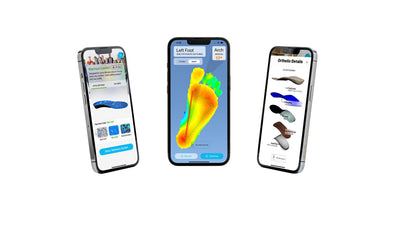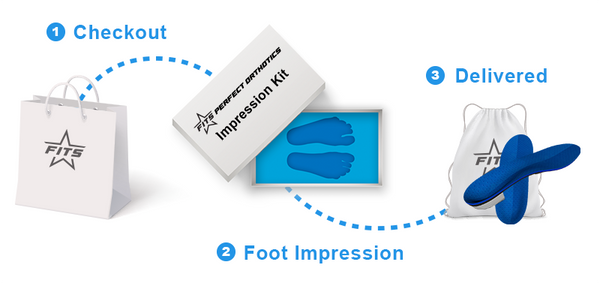What is Morton's Neuroma?
Morton's neuroma is a common foot condition that affects the nerves between the toes, most commonly the third and fourth toes. It is characterized by the thickening of the tissue surrounding the nerve, leading to sharp, burning pain, tingling sensations, and discomfort while walking or standing for prolonged periods. Factors such as improper footwear, repetitive stress on the feet, and foot deformities can contribute to its development.
Importance of Exercise in Morton's Neuroma Management
Exercise plays a crucial role in managing Morton's neuroma by strengthening the foot muscles, improving flexibility, and relieving pressure on the affected area. It is essential to perform exercises that specifically target the affected region, as this can help alleviate symptoms and prevent further progression of the condition.
1. Toe Squeezes
Toe squeezes are an excellent exercise for Morton's neuroma as they strengthen the muscles in the toes and promote proper alignment. Here's how to perform this exercise:
- Sit in a comfortable position with your feet flat on the floor.
- Place a small towel or cloth on the floor in front of you.
- Using your toes, grasp the cloth and pull it towards you, squeezing your toes tightly.
- Hold this position for a few seconds, then release and repeat the exercise 10-15 times.
- Perform toe squeezes several times a day to maximize their benefits.
2. Arch Stretch
The arch stretch helps relieve tension in the foot's arch, reducing pressure on the affected nerves. Follow these steps to perform the arch stretch:
- Stand facing a wall, about an arm's length away, with your hands resting against the wall for support.
- Step back with one foot while keeping the other foot closer to the wall.
- Keep the back leg straight, with the heel flat on the ground.
- Slowly lean towards the wall, bending the front knee until you feel a stretch in the arch of the back foot.
- Hold the stretch for 20-30 seconds, then switch legs and repeat the exercise 3-5 times on each side.
- Perform the arch stretch daily to improve flexibility and relieve discomfort.
3. Calf Raises
Calf raises are beneficial for Morton's neuroma as they strengthen the calf muscles, providing support to the feet and reducing strain on the affected area. Here's how to perform calf raises:
- Stand near a wall or use a stable object for balance.
- Place your hands on the wall or hold onto the object for support.
- Slowly rise up onto your toes, lifting your heels off the ground.
- Hold the raised position for a few seconds, then lower your heels back down.
- Repeat the exercise 10-15 times, gradually increasing the number of repetitions as your strength improves.
- Perform calf raises regularly to enhance muscle strength and stability.
4. Toe Extensions
Toe extensions help by improving flexibility, reducing stiffness, and enhancing range of motion in the toes. Follow these steps to perform toe extensions:
- Sit in a chair with your feet flat on the floor.
- Lift one foot off the ground and extend your toes forward, as if you are trying to reach something with them.
- Hold this position for a few seconds, then flex your toes back towards your body.
- Repeat this movement 10-15 times, then switch to the other foot and perform the exercise again.
- Incorporate toe extensions into your daily routine to enhance toe flexibility and relieve discomfort.
5. Achilles Stretch
Stretching the Achilles tendon helps alleviate tension and reduces strain on the affected area. Follow these steps to perform the Achilles stretch:
- Stand facing a wall with your hands resting on the wall for support.
- Take a step back with one foot, keeping it straight and the heel flat on the ground.
- Bend your front knee while keeping the back leg straight, feeling a stretch in the calf and Achilles tendon.
- Hold the stretch for 20-30 seconds, then switch legs and repeat the exercise 3-5 times on each side.
- Perform the Achilles stretch regularly to improve flexibility and relieve pressure on the feet.
6. Ball Roll
The ball roll exercise helps massage and relieve tension in the foot, providing relief from Morton's neuroma symptoms. Here's how to perform the ball roll exercise:
- Sit on a chair and place a small, firm ball (such as a tennis ball) on the ground in front of you.
- Place your affected foot on top of the ball.
- Apply gentle pressure and roll the ball back and forth with your foot, focusing on the arch and ball of the foot.
- Continue rolling the ball for 1-2 minutes, ensuring to cover the entire affected area.
- Perform the ball roll exercise multiple times throughout the day to alleviate discomfort and promote foot relaxation.
Custom-made Orthotics for Enhanced Support
In addition to exercises, incorporating orthotics into your daily routine can provide valuable support in managing Morton's neuroma. If you're experiencing Morton's neuroma pain, custom orthotics can be a great complement to the exercises mentioned earlier. Custom-made orthotics 3D fitted to your feet to address the specific challenges associated with Morton's neuroma, helping to provide long-lasting comfort and relief.





















